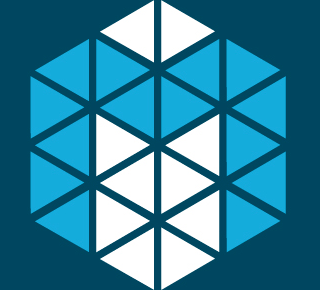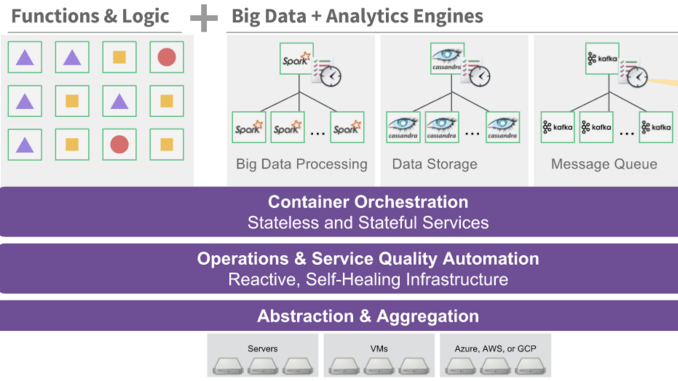HPE, Microsoft Back Mesosphere’s Datacenter OS

Mesosphere, the datacenter operating system startup working at the nexus of hyper-scale application development and cloud-based delivery of micro-services, announced a $73.5 million "strategic" investment round led by Hewlett Packard Enterprise and joined by new investor Microsoft Corp.
San Francisco-based Mesosphere also on Thursday (March 24) released the latest version of its Marathon container orchestration tool and a new continuous application development tool called Velocity. Marathon and Apache Mesos form the basis of the startup's flagship Datacenter Operating System (DCOS) designed to deploy and scale technologies such as Docker containers and Apache Spark.
Lak Ananth, managing director of Hewlett Packard Ventures, touted DCOS as nothing less than "the most exciting new enterprise operating system since Linux." The enterprise IT giant (NASDAQ: HPE), new investor Microsoft (NASDAQ: MSFT) along with other new and existing Silicon Valley venture firms are adding to Mesosphere's coffers which have swelled to $126 million in three funding rounds.
Prior to its investment, Microsoft adopted DCOS as its container orchestration platform while moving last year to bring Docker containers to the Azure cloud. DCOS will run on Windows Server 10, and the Azure container service is expected to be available later this year.
Along with the Azure container service, DCOS is deployed in large private datacenters run by customers such as Verizon (NYSE: VZ) and multiple large financial institutions that Mesosphere declines to identify.
Mesosphere's partnership with HPE will certainly focus on expanding hybrid cloud deployments and moving more enterprise applications to the cloud. However, the startup did not disclose details other than to characterize its work with HPE as a "very meaningful business relationship."
It's a good bet that HPE will leverage DCOS and Mesosphere's other tools to help customers scale their hybrid clouds by pushing application containers and other micro-services to production along with big data and analytics.
DCOS is designed to run services ranging from application containers to real-time big data and analytics engines on the same cluster. "We do take the operating system [approach] literally," Matt Trifiro, Mesosphere's senior vice president, stressed in an interview. The goal is to "make your datacenter as easy to operate as your laptop or smartphone."

Mesosphere's Datacenter Operating System is designed to run all services in a single cluster. (Source: Mesosphere)
Along with Docker and Apache Spark, the startup said its platform is geared to running emerging technologies like the distributed database manager Apache Cassandra and Apache Kafka, the open source messaging system.
Meanwhile, Mesosphere rolled out version 1.0 of its Marathon container orchestration platform for DCOS along with a new application development tool called Velocity. The latter is designed to accelerate application development and continuously move application containers into production.
Large customers such as Samsung (KRX: 005930) and Yelp (NYSE: YELP) have already wrung out Marathon orchestration in production settings, Mesosphere noted. The full-up version includes new networking and security features.
Velocity, meanwhile, aims to help accelerate application delivery via "continuous integration and continuous delivery" in settings based on Docker containers, Apache Mesos and, at its core, the Jenkins continuous integration service for software development.
Velocity essentially integrates Jenkins with Marathon orchestration, explained Amr Abdelrazik, Mesosphere's product manager. As application development merges with operations, "It's a steep learning curve for a lot of organizations," Abdelrazik explained.
With Velocity, Mesosphere is looking to do for DevOps what DCOS aims to do for the datacenter: type a single command to perform a live update or scale up an application to production.
Trifiro described the current DevOps challenge this way: The CIO of a major bank told Mesosphere it has as many developers as Google, "it just doesn't have any Google [like] developers." Hence, the startup claims large financial institutions are embracing DCOS as a way of consolidating a range of operations on a single cluster.
Along with Microsoft, Mesosphere said other new investors included A Capital and Triangle Peak Partners. Other existing investors include Andreessen Horowitz, Khosla Ventures and Fuel Capital. Trifiro asserted that backing from HPE and Microsoft signals nothing less than a "realignment of the industry around our technology."
Related
George Leopold has written about science and technology for more than 30 years, focusing on electronics and aerospace technology. He previously served as executive editor of Electronic Engineering Times. Leopold is the author of "Calculated Risk: The Supersonic Life and Times of Gus Grissom" (Purdue University Press, 2016).











